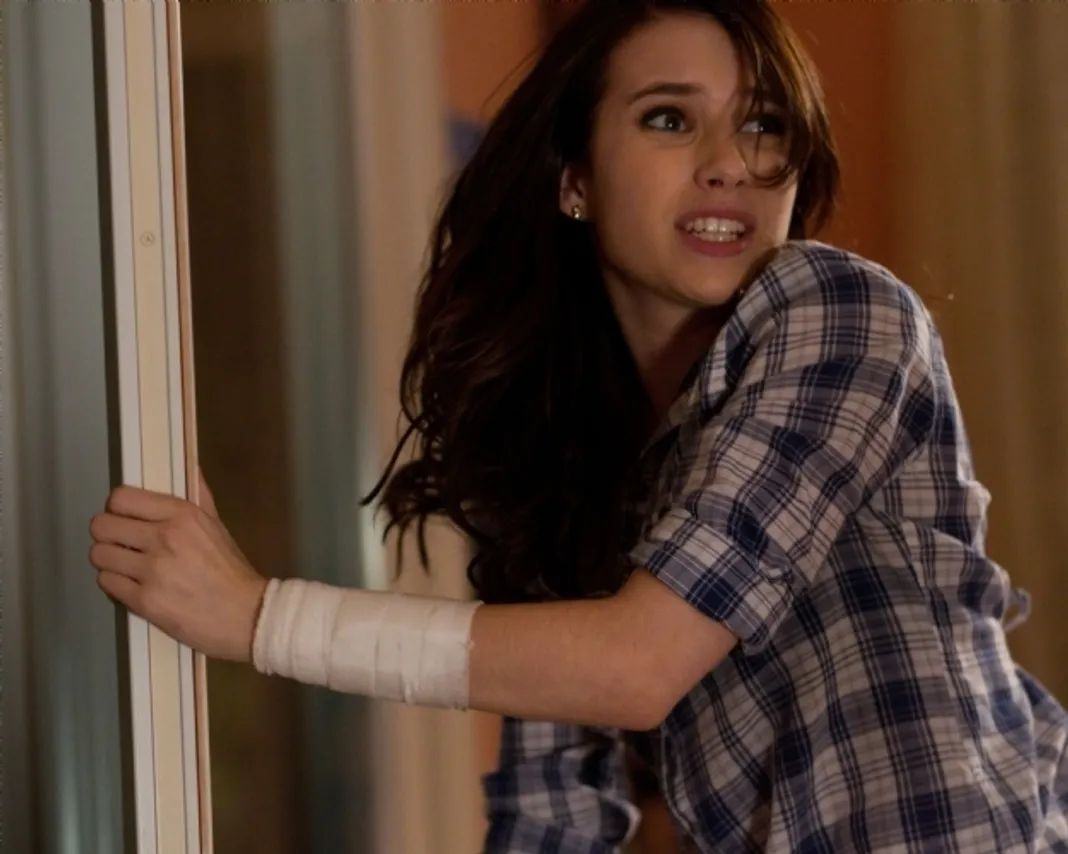Scream 4 is an interesting phenomenon in terms of self-awareness. The original film set the bar for self-aware horror movies. When it was released, Wes Craven’s film was lauded for its meta methodology because, as a culture, we were so in-tune with its genre’s tropes that other horror films prior to and after it became unrealistic (we know better than to go into the house alone or run upstairs in the dark).
But now Scream 4 is asking, “what happens when we’re aware of being aware?” A very smart film critic or blogger said, quite truthfully, (and I paraphrase because I can’t remember where I read this let alone who said it) “Scream was [about] ‘what if the characters knew they were in a horror film’. Scream 4 is [about] ‘what if the characters realized they were in a Scream movie’?” How did we get this far? Well, keep reading.
Self awareness didn’t start with Bugs Bunny. Hell, Shakespeare often alluded to his characters being nothing more than actors on a stage. But would you rather read Shakespeare or watch Daffy Duck? That’s what I thought.
Duck Amuck played with the confines of animation about as well as you could hope in 1953. Daffy was aware he was a cartoon character and believed cartoons should behave in a certain manner. When the unseen artist messed with him by changing locations, sounds, colors and bodies, he was enraged. And then the pull back at the end revealed the animator was the biggest trickster of them all – Bugs Bunny. Like most WB cartoons it was silly, but also pretty smart. Perhaps Duck Amuck can be viewed as a commentary on animator’s views on themselves: they see themselves as being Bugs Bunny, by means of playing tricks on the norm for their own amusement before others. Or perhaps it can be viewed as an intelligent Saturday morning cartoon.
Here’s where things start getting fun. Around this time, television underwent an unusual transformation: shows were being written by people who had grown up on television. They wrote characters that knew as much as the. So all the usual tropes (which are needed in stories) had to be called out because if they weren’t, it would seem highly implausible. Buffy wasn’t the first, but no one did it better than uber-geek Joss Whedon. Thanks to him, Buffy was conscious of what was happening to her; when an adventure-of-the-week started to resemble a horror story, she (along with the rest of the cast) called it out. Unfortunately, that didn’t stop them from singing for an entire episode.
| Jokes.com | |||
| Patton Oswalt – Reality | |||
| comedians.comedycentral.com | |||
|
Then along came the nerdy comedians. Patton Oswalt’s bit about reality TV shows filming everything they can and then having to invent a new reality is a great monologue. But it does ask a deep question: what if we did become so aware of how similar out lives have become like television shows? Okay, that’s kind of a stretch. Honestly it was just an excuse to post that funny bit. The good stuff starts about half way through.
(Apologies for the sound getting out of sync. But the scene is worth it.)
Ironically enough, someone actually made a movie about what Oswalt was talking about. In Stranger Than Fiction, Will Ferrell’s Harold Crick realizes he is a character in a novel and then sets out to meet the author of the story. You really can’t get more meta than that. Unless, of course, the characters come to realize they are actually characters in a movie, but even that’s too much and makes my head hurt.
Stranger Than Fiction does ask an interesting question: if we discovered we were in a story, would we do what was written or what we wanted? It’s an intriguing question coming from an intriguing movie, but it still challenges us to look at our lives in a way we’re not used to — as a third person omnipotent narrator. And to think that came from a Will Ferrell movie!
All the self-awareness in the world came crashing together in 2009 when Community debuted with its pop-culture savant Abed, a genius who points out when the characters in his show are acting like characters in a TV show. It grounds the already grounded characters even more, but most importantly it makes for some thought provoking television.
Abed is a superhero of self-awareness; a meta-man for the Hulu generation. How anyone can ever hope to top him, both as a character and as a pop-culture know-it-all, is beyond me. We have become so desensitized to the norms of fiction that a character like Abed was inevitable. And just to top it all off, even the writers are aware of Abed’s self awareness. Ladies and Gentlemen, we have reached the singularity. Thanks for playing.


